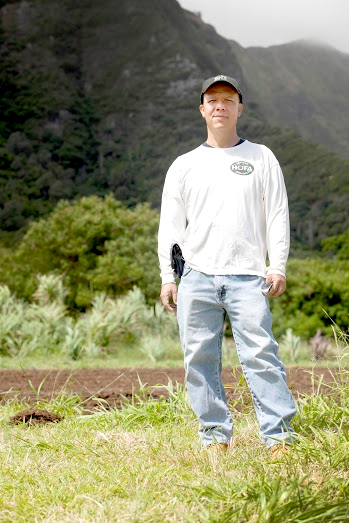The Silencing of Hector Valenzuela

*What is the story?: A Latino agriculture scientist at the University of Hawai’i, studying alternatives to GMO experimenting, claims he was silenced by his superiors.
Why is it important?: Agricultural biotechnology and GMO’s are controversial issues. The Monsanto Corporation is a large donor to the University of Hawai’i. VL
![]() By Paul Koberstein and Eliza Murphy, Cascadia Times
By Paul Koberstein and Eliza Murphy, Cascadia Times
The islands of Hawai‘i are like a magnet attracting insects from all over the world. Bugs catch a ride on every ship headed to the islands, and state authorities often find bug species they’d never seen before. And the bugs stay.
As Hawai‘i has no winter frost to beat back pests, over time this accumulation of bugs started to become a problem, especially for farmers. Their response: apply a heavy dose of chemicals
A Hawai‘i Department of Agriculture report from 1969 said Hawaiian farmers were using pesticides at a rate 10 times higher than the national average (in terms of pounds per acre).
In 1993, Dr. Hector Valenzuela, then a non-tenured professor of tropical plant and soil science at the University of Hawai‘i-Manoa, began a long-term research project to determine whether it’s possible to grow crops in the state without synthetic pesticides. Valenzuela, who in 1990 received his Ph.D. in vegetable crops from the University of Florida, established the first long-term organic farming research project in Hawai‘i and the Pacific region.
Valenzuela planted 50 varieties of vegetables — including tomato, daikon radish, bulb onion, cucumber, eggplant, zucchini, bush beans, pole beans, sweet potato and bell pepper — on 2.5 acres at the university’s Waimanalo Experiment Station located some 15 miles from the Manoa campus in the southeast corner of Oahu. With an enrollment of about 20,000, the Manoa campus, located near downtown Honolulu, is the largest of the 19 units in the University of Hawai‘i system. The College of Tropical Agriculture and Human Resources (CTAHR) where Valenzuela teaches is the largest unit within the Manoa campus.
By 1999, he had initiated several long-term research projects at Waimanalo. The organic farming plots were his research laboratory.
But it all came to an end inexplicably in 1998 when Charles Laughlin, then the dean of CTAHR, shut down the organic farming research project. Valenzuela recalls the dean’s exact words: “You can no longer use those plots.” Laughlin had decided that a Japanese religious group would use them instead.
Click HERE to read the full story.
[Photo courtesy of Cascadia Times]

